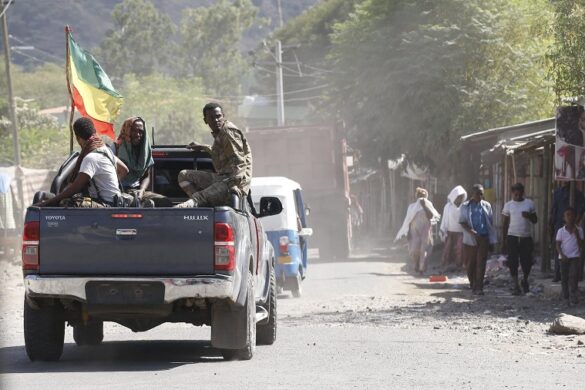
Visit to the New Rulers
Defense Minister Pistorius has arrived in Niger, which has been under military rule since the coup in July. He plans to visit the German soldiers stationed there and gain clarity on the course of the new rulers.
This is a visit with many question marks: What will happen to the air transport base in Niger’s capital, Niamey, where currently around 120 German soldiers are stationed? And what exactly will be the German government’s approach to the military government that came to power through the coup at the end of July?
Defense Minister Boris Pistorius is convinced that the presence on the ground and strategic contacts in the region are important: “Simply leaving is not the solution,” said the SPD politician, as he welcomed the Bundeswehr soldiers who were withdrawn from the neighboring country of Mali last week.
With his visit to Niamey, Pistorius wants to emphasize how much he cares about the safety of the Germans remaining there and gain clarity about a convoy of German military goods that is stuck in customs after the withdrawal from Mali.
Military rulers turn to Russia
The talks in Niamey are certainly a balancing act politically: After all, the military rulers have clearly shown the cold shoulder to the EU and turned to Russia.
No EU country recognizes the coup government. Germany’s closest European ally, France, is withdrawing all its troops from Niger by the end of the week. In Paris, they prefer a tough line in dealing with the coup plotters.
Experts warn against leaving the field to Moscow
The US, on the other hand, signaled last week that under certain conditions, they can indeed consider cooperation. Security experts constantly warn against the danger of completely leaving the field in the Sahel to Moscow. The rulers in Niger had demonstratively received a Russian delegation in early December and announced a strengthening of military cooperation.
The German Defense Minister visited Niger for the first time in April, but under completely different circumstances: Pistorius called Niger “an anchor of stability, which is not indestructible.” He and his then counterpart, Alkassoum Indattou, praised the decades-long close cooperation between the two countries in front of the press under the scorching sun. However, with the coup, Indattou lost his position, and Germany lost another important partner in the Sahel region.


